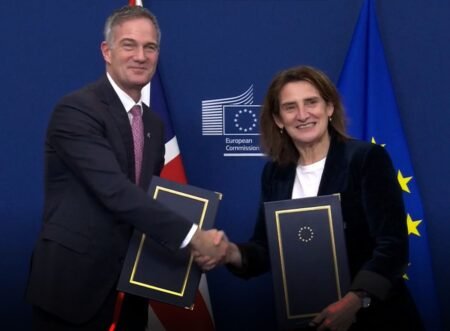The European Commission has launched a public consultation on proposals to improve merger control at EU level outlined in a White Paper.
Advertisement
The reform of the Merger Regulation in 2004 has made the EU’s merger control regime more efficient and predictable, preserving effective competition in the Single Market for the benefit of businesses and consumers. Nevertheless, the experience of the last ten years has also shown that there is scope for further improving some aspects of EU merger control. In its White Paper “Towards More Effective EU Merger Control” the Commission makes proposals that would allow it to better deal with non-controlling minority shareholdings which may affect competition, and that would make referral procedures simpler and faster. Comments can be submitted until 3 October 2014. In light of the comments received, the Commission may then put forward a legislative proposal to revise the EU Merger Regulation.
The key proposals of the White Paper are the following:
- A light and tailor-made review of acquisitions of non-controlling minority shareholdings which could harm competition. Companies can acquire minority stakes in for example competitors and thereby influence their behaviour and reduce competition in the market. The EU’s merger rules currently do not allow the Commission to examine these effects, while the rules of some Member States allow national authorities to do so, as well as rules prevailing in other major jurisdictions like the US and Japan. The envisaged reform would ensure that the Commission can examine those transactions which raised competition concerns and had a cross-border impact within the EU. This would ensure that all sources of harm to competition were covered and establish a one-stop shop for these transactions. It would also not create a significant extra regulatory burden for businesses, since only transactions that appeared to be problematic from a competition point of view would face review. Benign investments and restructuring efforts would not be covered.
- Making case referrals between Member States and the Commission more business-friendly and effective. Under the proposals, the companies who notify a merger could more easily refer a case to the Commission through a simpler procedure. In addition, the rules for Member State requests to have a case reviewed by the Commission would become more streamlined, to avoid parallel investigations and better implement the one-stop shop principle. The new procedure would also allow Member States to better cooperate amongst themselves when they are not referring a case to the Commission.
- Making procedures simpler. This can be achieved for example by excluding certain non-problematic transactions from the scope of the Commission’s merger review, such as the creation of joint ventures that will operate outside the European Economic Area (EEA) and have no impact on European markets. Notification requirements for other non-problematic cases – currently dealt with in a ‘simplified’ procedure – could be further reduced, cutting costs and administrative burden for businesses.
- Fostering coherence and convergence. The White Paper takes stock of the use of current EU merger control rules and proposes to reflect on ways to foster convergence between Member States with a view to enhance cooperation and to avoid divergent decisions in parallel merger reviews conducted by the competition authorities of several Member States.
White Paper and its accompanying Staff Working Document
Background
In 2009, following a public consultation, the Commission addressed a report to the EU Council of Ministers on the functioning of the Merger Regulation, in particular the allocation of cases between the Commission and Member States. In 2013 the Commission published a Staff Working Document outlining a relatively wide spectrum of policy options relating to the topics of minority shareholdings and case referrals with a view of seeking stakeholders’ comments.
Both public consultations (in 2009 and 2013) confirmed that in general the Merger Regulation works well and no fundamental overhaul is needed. However, the public consultation showed that there is room for improvements in certain areas. Overall, the replies to the 2013 Report very much welcomed the reflections on streamlining the referral process and making it more effective and showed that it would be appropriate to allow the Commission to deal with minority shareholdings under the Merger Regulation.
In light of the submissions received, the Commission has now fine-tuned and detailed the reform proposals in the White Paper.
The White Paper should be seen in the context of the Commission’s commitment to regularly review the functioning of existing legislation under the new Regulatory Fitness and Performance Programme (“REFIT-programme”) in order to make rules and procedure less burdensome for business.
The proposals complement a procedural simplification package adopted in December 2013, resulting in an increased use of a so called ‘simplified’ procedure for non-problematic mergers and a substantial reduction in information requirements for all notified cases. Further steps towards making EU merger control simpler and more efficient require an amendment of the Merger Regulation and are outlined in the White Paper.






